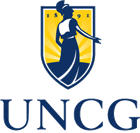|
Dr. Olav Rueppell |
||||||||||||||
|
Our office and lab space are located in the Eberhart
Building on the main
UNCG campus. Click for a broad or a detailed map how to get there. Our research apiary and bee facility are located 5min to the west (see map). If you want
to DONATE directly to UNCG’s honey bee
research program, Disclaimer:
The material located at this site is not endorsed, sponsored, or provided by or on behalf of the LAST UPDATED Sept. 2011 |
Teaching, because “We are
drowning in information, while starving for wisdom“ (E.O.
Wilson)
I think that
the main responsibility of a university is the graduation of mature,
respectable and knowledgeable people. In addition to biological concepts and
facts, I consider universal values such as tolerance, creativity, critical
thinking, and reasoning, essential to any student’s education. However, I can
only be the facilitator of the learning progress, so I urge all students:
Play an active role in your education! You are not a consumer but an actor in
the classroom, even in larger classes. For my part, I promise to strive to
constantly improve
my teaching methods.
|
|||||||||||||
|
|
|
|
|
|
|
|
|
Mentoring:
I offer a number of formats for students to participate in my research and mentor a number of graduate and undergraduate students in a genuine research setting. Undergraduate students can volunteer, enroll in BIO499 (“Undergraduate Research”), or engage in the disciplinary honors programs (BIO493). Graduate students can contact me for lab rotations (BIO649) and later enroll in Research (BIO695) and Thesis (BIO699).
I have participated in two specific training programs for undergraduates, funded through the National Science Foundation: The Math-Bio Undergraduate Fellowship that trains teams of students through interdisciplinary original research projects at the interface of biology, mathematics and informatics all year; and the 8-week Interdisciplinary Quantitative Science REU that involves more individual projects but programmatically brings together students and instructors from multiple disciplines.










